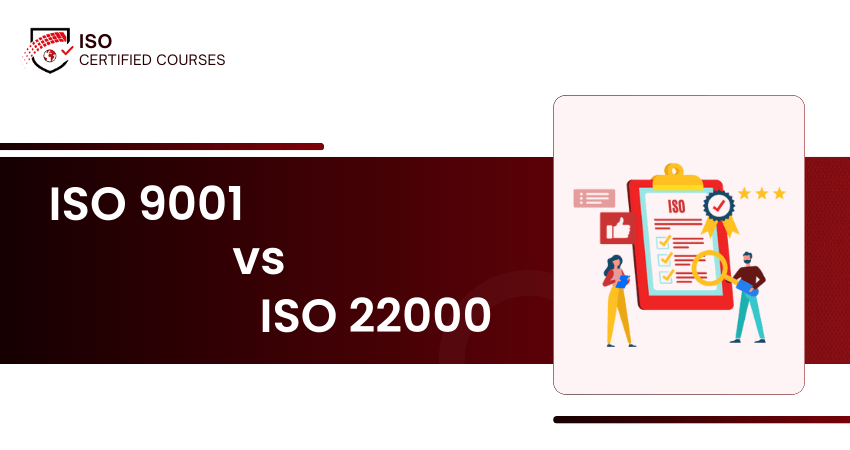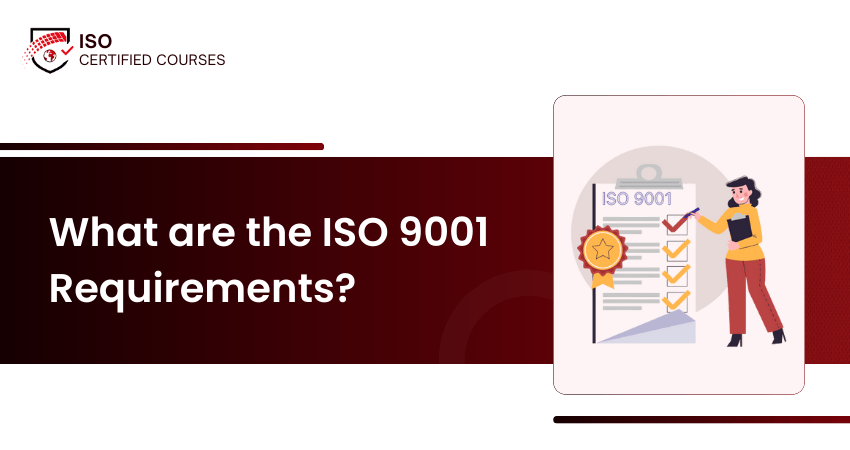ISO 26000 Social Responsibility Overview
The ISO 26000 Social Responsibility Course offers comprehensive guidance on integrating socially responsible practices into organisational strategy and operations. Suitable for sustainability officers, CSR professionals, and ethics advisors, this course helps participants understand how ISO 26000 can shape responsible decision-making and stakeholder trust across all sectors.
Key Topics Covered
Core Principles of Social Responsibility: Accountability, transparency, ethical behaviour, and human rights
Stakeholder Engagement: Identifying, prioritising, and communicating with affected parties
Sustainable Development Goals (SDGs): Linking ISO 26000 with global sustainability initiatives
Integration and Implementation: Embedding social responsibility into governance and culture
Course Benefits
Lead responsible change: Drive sustainability, ethics, and inclusion through structured ISO 26000 practices
Enhance brand reputation: Build stakeholder confidence through commitment to social responsibility
Support ESG objectives: Align business goals with environmental, social, and governance (ESG) standards
Drive long-term value: Foster relationships and innovations that support enduring success
This course is designed for professionals working in roles that influence or support social responsibility initiatives. It is ideal for:
CSR and ESG Professionals
Sustainability Officers
Ethics and Compliance Managers
Corporate Affairs Executives
Public Sector Officers
NGO and Development Professionals

ISO 26000 Social Responsibility Outline
Module 1: Introduction to ISO 26000
- Overview of ISO 26000
- Scope
- Terms and Definitions
Module 2: Understanding Social Responsibility
- Social Responsibility of Organisations: Historical Background
- Recent Trends in Social Responsibility
- Characteristics of Social Responsibility
- State and Social Responsibility
Module 3: Principles of Social Responsibility
- General
- Accountability
- Transparency
- Ethical Behaviour
- Respect for Stakeholder Interests
- Respect for the Rule of Law
- Respect for International Norms of Behaviour
- Respect for Human Rights
Module 4: Corporate Social Responsibility (CSR)
- What is Corporate Social Responsibility?
- Importance
- Types of Corporate Responsibility
- Building a Socially Responsible Business
- What to Avoid When Creating a Socially Responsible Business Model?
Module 5: Recognising Social Responsibility and Engaging Stakeholders
- General
- Recognising Social Responsibility
- Stakeholder Identification and Engagement
Module 6: Build Sustainable CSR Programme
- Build Strategy Around Company’s Core Competencies
- Recognise Issues that Matter to Customers
- Develop CSR Initiatives that Make Employees Proud
- Measure the ROI of CSR Efforts for the C-Suite and Investors
- Expand Company’s Definition of CSR
- Be Prepared for Rapid Response to Current Events and Social Movements
Module 7: Internal Audit
- Understanding Internal Audits
- Internal Audit Process
- What is Internal Auditing?
- Internal Auditor
Module 8: Social Audit
- What is a Social Audit?
- Principles
- Significance
- Items Examined in a Social Audit
- Use of Social Audit Findings
- Role of Internal Audit in Corporate Social Responsibility
Module 9: Principles of Auditing
- Introduction
- Integrity
- Fair Presentation
- Due Professional Care
- Confidentiality
- Independence
- Evidence-Based Approach
- Risk-Based Approach
Module 10: Managing an Audit Programme
- General
- Establishing Audit Programme Objectives
- Determining and Evaluating Audit Programme Risks and Opportunities
- Establishing the Audit Programme
- Implementing Audit Programme
- Monitoring Audit Programme
- Reviewing and Improving Audit Programme
Module 11: Internal and External Environment Analysis
- Internal and External Environments
- SWOT Analysis
- Analyse Internal Environment
- External Environment Analysis
Module 12: Guidance on Social Responsibility Core Subjects
- General
- Organisational Governance
- Human Rights
- Labour Practices
- Environment
- Fair Operating Practices
- Consumer Issues
- Community Involvement and Development
Module 13: Guidance on Integrating Social Responsibility Throughout an Organisation
- General
- Relationship of an Organisation's Characteristics to Social Responsibility
- Understanding the Social Responsibility of an Organisation
- Practices for Integrating Social Responsibility throughout an Organisation
- Communication on Social Responsibility
- Enhancing Credibility Regarding Social Responsibility
- Reviewing and Improving an Organisation's Actions and Practices Related to Social Responsibility
- Voluntary Initiatives for Social Responsibility
Module 14: Steps to Implement CSR in Business
- What are the Steps to Implement CSR in Business?
Module 15: Implementation Strategies
- CSR Implementation
- Hohnen´s CSR Implementation Framework
- CSR Implementation Model
- Propositions
Module 16: Introduction to Lead Auditor
- Lead Auditor
- Role of Lead Auditor
Module 17: On-Site Auditing
- On-Site Auditing
- Conduct Interview
- Create and Evaluate Checklist
- Questionnaires for Data Collection
- Conduct Document Review
- Evaluate the Work Done
- Provide Sample
Module 18: Competence and Evaluation of Auditors
- General
- Determining Auditor Competence
- Establishing Auditor Evaluation Criteria
- Selecting Appropriate Auditor Evaluation Method
- Conducting Auditor Evaluation
- Maintaining and Improving Auditor Competence
Module 19: Conducting an Audit
- General
- Initiating Audit
- Preparing Audit Activities
- Conducting Audit Activities
- Preparing and Distributing Audit Report
- Completing Audit
- Conducting Audit Follow-Up

What You’ll Learn in this Course
By the end of the course, you will be able to:
- Explain the purpose, structure, and core themes of ISO 26000
- Integrate social responsibility into corporate policies and decision-making
- Identify stakeholder needs and manage expectations effectively
- Promote sustainable practices throughout the value chain
- Contribute to ethical, transparent, and inclusive organisational behaviour

What’s Included
ISO 26000 Social Responsibility Examination
Expert-led training by experienced CSR practitioners
ISO 26000 Social Responsibility Certificate
Digital Delegate Pack
ISO 26000 Social Responsibility Exam Details
To achieve the ISO 26000 Social Responsibility Training, candidates will need to sit for an examination. The exam format is as follows:
Question Type: Multiple Choice
Total Questions: 30
Total Marks: 30 Marks
Pass Mark: 50%, or 15/30 Marks
Duration: 40 Minutes

Individual Training
Boost your expertise with our Individual Training, tailored for professionals seeking ISO knowledge at their own pace. Learn core standards, industry best practices, and implementation skills from certified experts.
Corporate Training
Empower your teams with our Corporate Training solutions, designed to align ISO standards with your organisational goals. Ensure compliance, boost efficiency, and build a culture of continuous improvement across your workforce.
Our Upcoming Sessions
- Online Instructor-Led
- Online Self-Paced
- Classroom
- Onsite
Boost Your Career with ISO Training
Average salary boost for professionals with our ISO Training in compliance and standards roles
85%Learners begin roles in quality assurance, compliance, or audit after completing our ISO Courses
90% Compliance Readiness
Organisations report enhanced operational efficiency and preparedness following our ISO Training for employees
-
Manufacturing and Production
-
Energy and Utilities
-
Construction and Infrastructure
-
Waste Management and Recycling
-
Information Technology and Information Security
-
Public Sector and Environmental Services
Our Immersive Learning Solution
Hands-On Learning Experience
Engage with real-world scenarios, interactive tasks, and simulations that bridge theory and practical application.
Expert-Led Delivery
Learn from seasoned professionals with deep industry experience and insight into ISO standards and beyond.
Flexible Learning Formats
Choose from Online Instructor-Led, Online Self-Paced, or Classroom sessions designed to suit your pace and preferences.
Customised Content
Training aligned with your sector, goals, and challenges, ensuring relevant, targeted learning every time.
Empowering Growth with Tailored Training Solutions
We help organisations equip their teams with the skills and knowledge needed to consistently meet industry standards. Our corporate training is designed around your specific operational goals, ensuring alignment with the ISO framework.
With a strong focus on real-world application and measurable outcomes, each session drives practical capability and lasting improvement. By fostering standard-driven performance across all levels, we empower your workforce to contribute confidently and consistently to organisational success.
- Delivered by industry-certified trainers with hands-on experience
- Custom content aligned to your sector, standards, and strategy
- Flexible formats, including on-site, virtual, or blended, to suit your teams
On-Demand Access
Custom and Scalable Solutions
24x7 Support












Feedback From Our Clients
The ISO 9001 Internal Auditor Training gave me practical insight into quality systems and how to apply audit techniques effectively. The sessions were clear and approachable, even without prior auditing experience. I now feel confident reviewing documentation, identifying nonconformities, and contributing to continuous improvement. The real-world examples and audit scenarios helped me understand the practical side of compliance and how it fits into our daily operations.
Completing the ISO 45001 Foundation Training provided me with a solid understanding of occupational health and safety standards. The training clarified legal requirements, hazard identification, and risk control measures. I’ve applied this knowledge to improve our incident response protocols and reinforce safety culture within the team. It’s also made me more effective at communicating compliance expectations and supporting ongoing H&S initiatives.
The ISO 22301 Foundation Training helped deepen my knowledge of business continuity planning and risk preparedness. The course content was practical and focused on real implementation challenges, which I could immediately relate to my role. I now play a more active part in reviewing continuity plans and coordinating recovery strategies. The training has improved how we manage operational risks and strengthened our overall resilience.
I registered my team in the ISO 9001 Lead Implementer Training, and the improvements were visible right away. The training gave us the tools to standardise workflows, enhance documentation, and build a consistent quality management system. The team has taken ownership of processes and is now more proactive in identifying areas for improvement. It’s significantly enhanced how we align with best practices and deliver results with greater reliability.
Our team participated in the ISO 45001 Lead Auditor Training to reinforce our internal safety and compliance framework. The training not only improved our auditing skills but also helped us critically assess our workplace health and safety practices. We’ve since implemented stronger controls and improved reporting structures. The shift in awareness and engagement has been very positive, especially in high-risk areas.
Frequently Asked Questions
What is the ISO 26000 Social Responsibility Course about?
This course explains how to use ISO 26000 to integrate socially responsible practices across operations, supporting sustainability, ethics, and stakeholder trust.
Do I need prior experience in CSR to attend this course?
No specific experience is required. However, a general understanding of social or sustainability challenges can enhance your learning.
What industries can benefit from this course?
All sectors benefit, including corporate, public, and non-profit organisations aiming to improve governance, transparency, and social impact.
Is ISO 26000 a certifiable standard?
No, ISO 26000 is a guidance standard. The course focuses on applying its principles to promote responsible decision-making and behaviour.
How does this course support ESG reporting?
It helps align organisational practices with key ESG indicators and provides insight into stakeholder engagement, ethics, and sustainability actions.








































